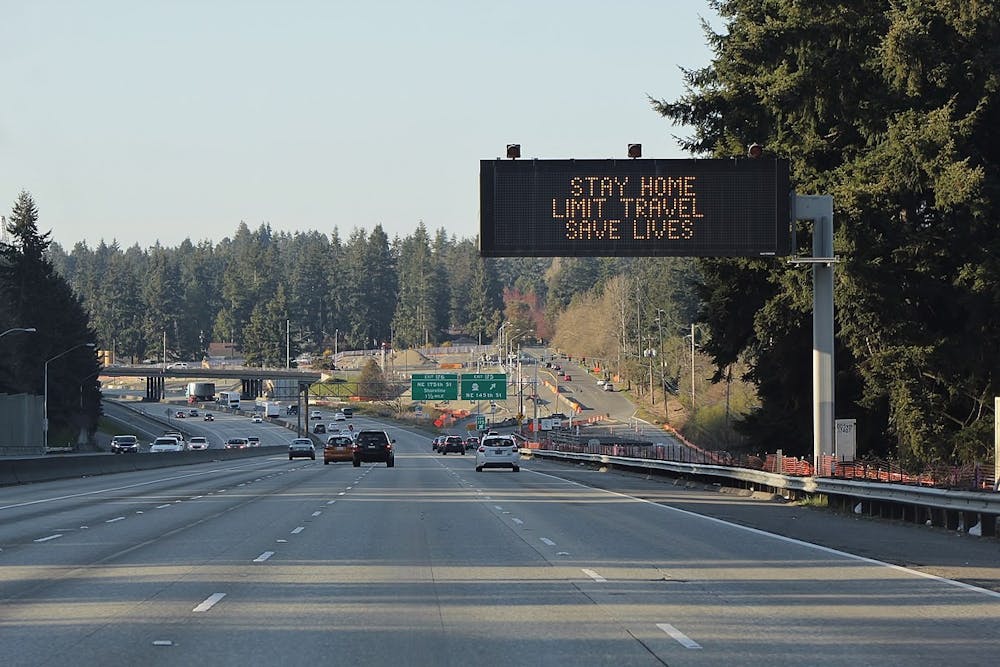By mid-March, concerns over the spread of the coronavirus emerged at the forefront of the national conversation. Within weeks, nearly every state adopted some form of a stay-at-home order, bringing the country into an economic standstill. While stay-at-home orders were originally adopted to slow the spread of the virus, these orders overlook their original purpose, and will ultimately cause more death and hardship than the virus itself.
Ironically, in an effort to reduce the stress on the medical system — or “flatten the curve” — these mandates have actually placed an undue level of future stress on the medical system, through missed checkups and mass-layoffs. Twelve weeks in, there are now three cohorts of kids that have missed vaccinations and regular checkups, dramatically increasing the risk of a new outbreak of measles, meningitis and polio, among other diseases that have historically led to mass fatalities. Similarly, many people are missing screenings and blood work that facilitate the early detection of many forms of cancer due to stay-at-home orders and social distancing adaptations. However, when it comes to medicine, a delay in detection and treatment is often the difference between life and death. With approximately 1.8 million new cases of cancer each year, and an ever-growing number of under-vaccinated kids, additional deaths are inevitable. These numbers — these people — matter too.
This is only compounded by mass layoffs throughout the medical system, as a result of declining revenue from canceled and postponed procedures. In April alone, approximately 1.4 million healthcare workers lost their jobs, while many more were furloughed and saw their paychecks slashed. Canceled and rescheduled medical appointments are quietly creating a lengthy backlog which the medical industry will soon endure without the same level of resources.
This scenario is magnified with the increasing possibility of a new outbreak of measles or polio. In response, many have turned to telemedicine for checkups and clinical visits. However, there exist limitations to such a service, particularly for the elderly. In attempting to circumvent undue stress on the medical system, stay-at-home orders have in reality created a much bigger issue waiting to reveal itself in the form of mass casualties from outbreaks and late detection.
Beyond medical considerations, stay-at-home orders have a less visible — yet equally important — impact on mental health. This is particularly true for college students, with many depending on counseling and therapy that is only accessible on campus. Humans are simply not wired for social distancing, let alone complete isolation. Estimates show that approximately 75,000 additional deaths will occur due to suicide, alcohol consumption and drug overdoses while we continue to self-isolate. For others, these issues will continue to manifest themselves in every aspect of daily life, far beyond the timeline of the pandemic. The longer we push the narrative that staying home saves lives, the more unintended suffering and death we cause.
To address the elephant in the room, the most pressing side-effect of stay-at-home orders is the upending of our global economy. In May, the U.S. unemployment rate reached 13.3 percent, leaving over one in eight American workers without the means to provide for themselves and their dependents. Some argue that the economy can be rebuilt and that lives are more important than jobs. This perspective ignores the reality that, for many Americans, their well-being is tied to their employment status. For some, staying home means permanently closing down their business and losing their life’s work. For others, it means months without knowing the source of their next meal, or how they will make rent. Prolonged joblessness is only the beginning of the harsh cycle of poverty, which can lead to homelessness, starvation and ultimately, death. Every day that we avoid a return to normal, we lose another business, job and human life.
The COVID-19 death numbers published by the news media paint a bleak image. It is always difficult to see a loved one suffer or pass, and even more so today due to social distancing requirements. But perhaps stay-at-home orders are making the situation even worse. The genie is already out of the bottle, and it is time to look at what’s next.
We must recognize that deaths from the coronavirus are not black and white. There is much more to the picture than a statistic reported in a news headline. Prior to parroting the stay-at-home narrative, it is incumbent upon us to grapple with the reality of its consequences, understanding that staying home may ultimately do more harm than good.
Neil Kothari is an Opinion Columnist for The Cavalier Daily. He can be reached at opinion@cavalierdaily.com.
The opinions expressed in this column are not necessarily those of The Cavalier Daily. Columns represent the views of the authors alone.







